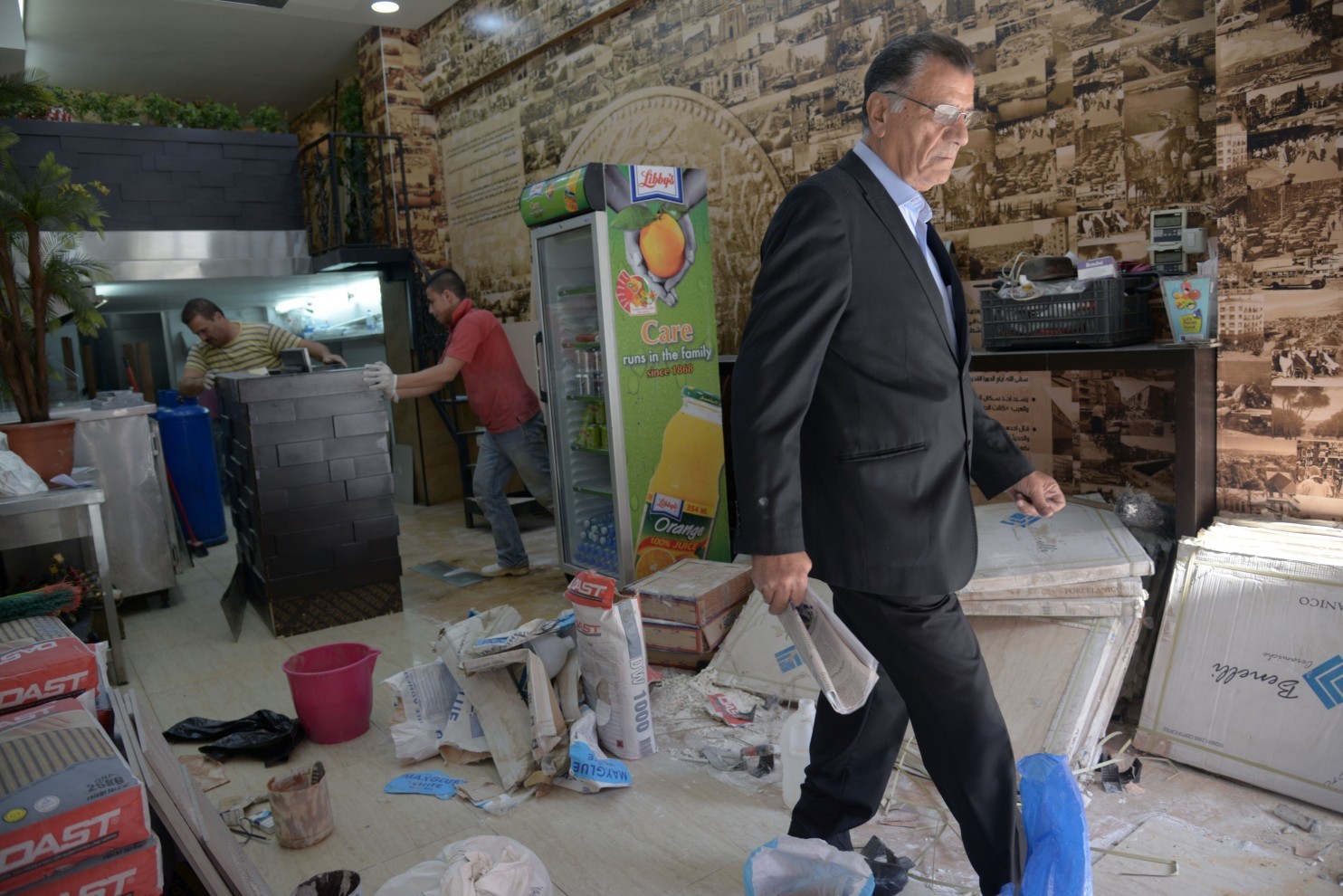U.S. President Barack Obama congratulated the Lebanese people on Friday on the occasion of Lebanon’s 71st Independence Day, lamenting on the anniversary the current vacuum in the presidency. He said in a message to Lebanon: “As a friend of the Lebanese people, the United States regrets this anniversary day passes without an elected president […]
BEIRUT: Kataeb Party leader Amin Gemayel announced Tuesday that an academy and a public park will be built in honor of his son, Pierre, who was assassinated in 2006. “We have launched the inauguration of a university called ‘The Pierre Amin Gemayel Academy’ on land donated by Bekfaya’s municipality,” the former president announced during […]
In August, the kingdom granted the Lebanese army an additional $1 billion in aid to "fortify security", alarabiya.net reported. The $3 billion Saudi grant is being used to purchase French weapons for the Lebanese army, after Saudi, Lebanese and French officials met in Riyadh November 4th to sign a purchase deal, while the $1 […]
BEIRUT: The Cabinet is not expected to agree on any major issues, including the food scandal and telecom file, ministers said Thursday before their meeting got underway at the Grand Serail in downtown Beirut. Thursday’s Cabinet session may look at failure of Lebanon’s infrastructure to prevent flooding, and licensing for universities to build new […]
Prime Minister Tammam Salam called on Thursday on rival parties to resume dialogue and prioritize the national interest after urging Arab and Lebanese bankers to help Lebanon confront the crisis of Syrian refugees and hoped that politicians would be “infected” with the success of the banking sector. “We should prioritize national interests and resume […]

(Reuters) – So many bullet holes cover the apartment blocks and shops in the Bab al-Tabbeneh district of northern Lebanon’s main city Tripoli that you can hardly tell which conflict they are from any more.
"The area is dying," Sheikh Omar al-Rifai, a local Sunni Muslim cleric, shouted over the roar of hammers repairing damaged storefronts and men dragging debris from gutted homes.Last month gunmen including supporters of the hardline Islamic State group fought the Lebanese army here for three days, a battle that killed several soldiers and damaged some of the largely Sunni port city’s most famous historic sites.
To outsiders, it may have seemed like a natural consequence of the dramatic rise of hardline Sunni groups from Iraq to Algeria. But for residents the conflict was rooted more in poverty, joblessness and frustrations over years of what they see as political marginalisation and economic mismanagement.

A sweeping investigation led by the Health Ministry identified scores of Lebanon’s restaurants, supermarkets, bakeries and butcher shops are tainted with not only bacteria such as E. coli and salmonella but also sewage and fecal matter. (Kate Brooks/For The Washington Post)
By Hugh Naylor
When it comes to cuisines of the Arab world, perhaps none other is as internationally recognizable — and mouthwatering — as Lebanon’s. There is more than a little pride here over the tangy fattoush salads, delectable mezes and dishes of skewered chicken and lamb that have distinguished this tiny Mediterranean nation as a culinary powerhouse. Which helps explain the shock and furor that erupted over recent findings that food offered at scores of Lebanon’s restaurants, supermarkets, bakeries and butcher shops is tainted with not only bacteria such as E. coli and salmonella but also sewage and fecal matter.
The revelations were the result of a sweeping investigation, led by the Health Ministry, into food-industry hygiene. Wael Abu Faour, the health minister, did not sugarcoat the findings when he announced them at a news conference last week. “The Lebanese don’t know what they’re eating, and it would only be worse if they knew,” he said. In excruciating detail, he named and shamed popular eateries and supermarket chains as public-health offenders. Their infractions included selling expired meat and using rusty cooking utensils and months-old frying oil. Germs also abounded in restaurant kitchens and supermarkets, said Abu Faour, who singled out an unspecified business for selling food containing traces of human feces.“The Lebanese are eating food dipped in sweat and covered with diseases and microbes,” he said. The findings — which emerged from a 20-day campaign in which thousands of food samples from 1,005 businesses were tested — have proved explosive. “Lebanese consumers learn they are eating [s—],” read a headline last week in the newspaper al-Akhbar.

Chinese officials called on Wednesday for controls on the Internet to preserve stability, saying its model for cyberspace regulation can be the framework for spawning commercial successes like Alibaba Group Holding Ltd. The comments, made at the start of the World Internet Conference (WIC), show China is unlikely to loosen its tight grip on the medium even as it has begun a transformation of its economic model.
"This place is crowded with tourists, who are perfectly orderly, and cyberspace should also be free and open, with rules to follow and always following the rule of law," Lu Wei, China’s Internet chief and director of the State Internet Information Office, said at the conference. Lu was referring to China’s eastern tourist town of Wuzhen, roughly 75 miles from Shanghai, which is hosting the three-day conference. Among those attending the conference were executives from Apple Inc, Facebook Inc, LinkedIn Corp, IBM Corp , Microsoft Corp, Qualcomm Inc, SoftBank Corp, Cisco Systems Inc, Amazon.com Inc, Nokia, Intel Corp and Thomson Reuters Corp.
BEIRUT: Hezbollah chief Sayyed Hasan Nasrallah met Tuesday with Defense Minister Samir Moqbel as the minister holds a series of talks with high-ranking political officials after his return from Tehran late last month. According to a statement released by Hezbollah’s media office, the two discussed “the latest political and security developments in Lebanon and […]
MP Marwan Hamadeh resumed on Tuesday his testimony before the Special Tribunal for Lebanon, focusing on Syria’s hegemony over Lebanon under the premiership of slain PM Rafik Hariri and examining his ties with former President Emile Lahoud. The ties between Hariri and MP Walid Jumblat came into prominence during the debate over the extension […]



